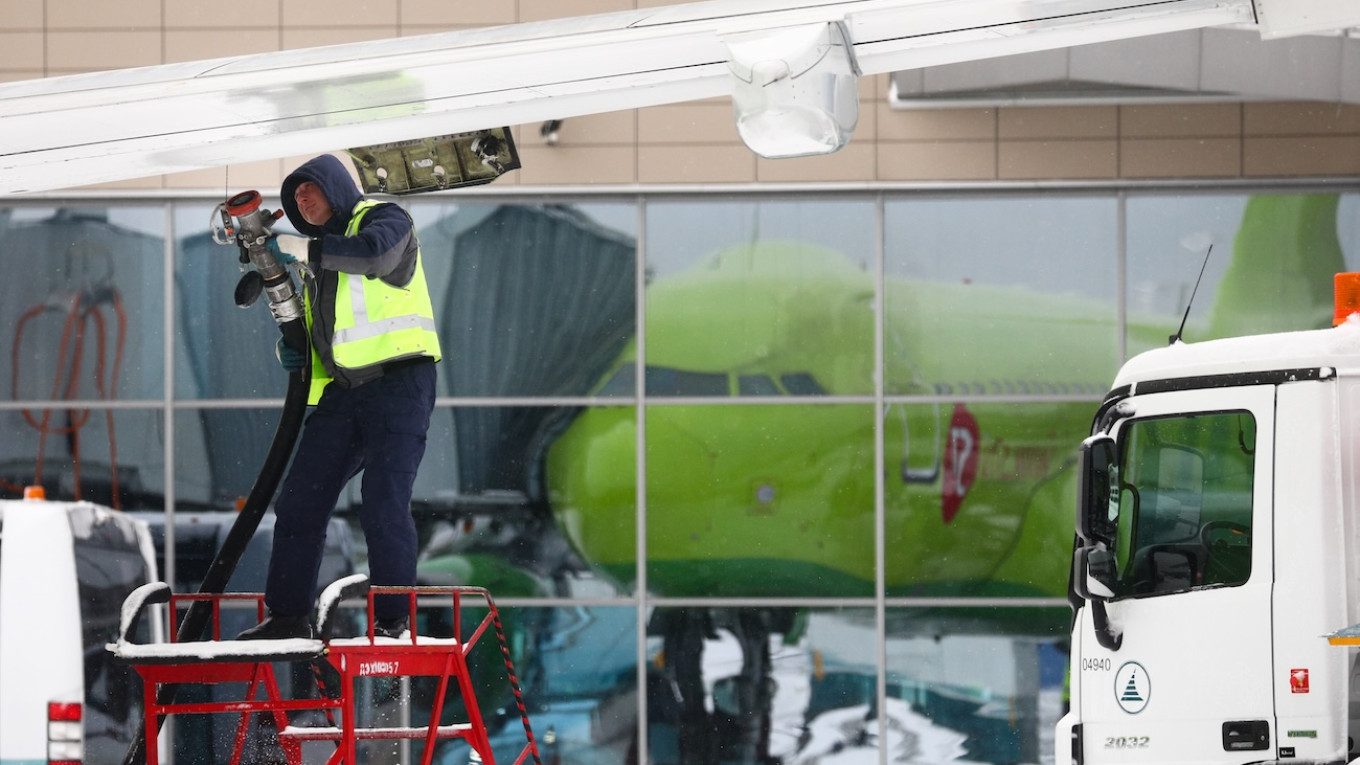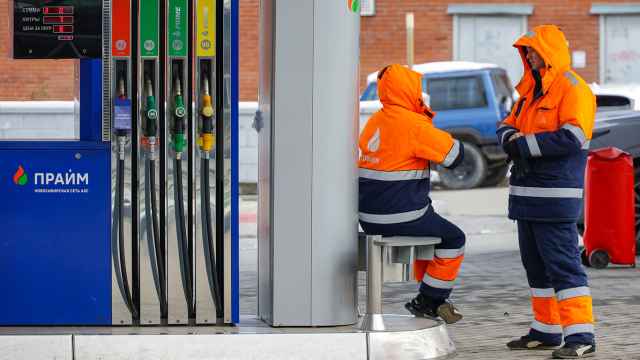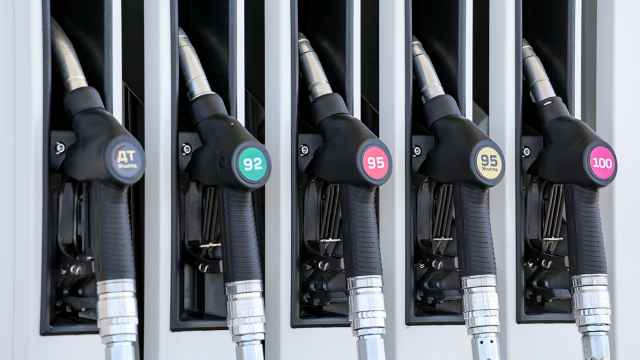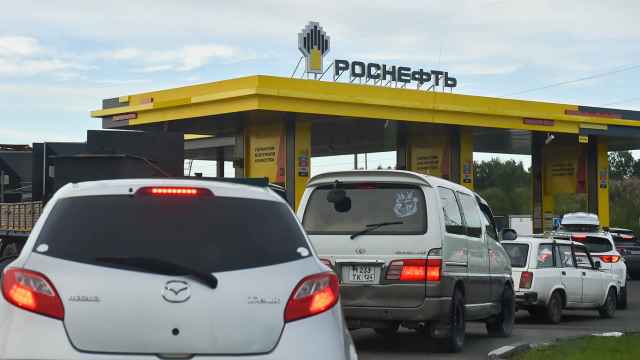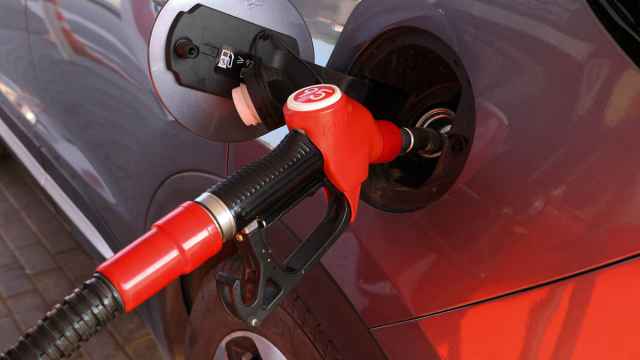Russia may soon face turbulence in its jet fuel market following months of disruption in gasoline supplies caused by Ukrainian drone strikes, an executive at the country’s largest private fuel supplier warned in comments to the RBC news website.
The government relaxed production requirements for oil products in an effort to stabilize the market after a wave of drone attacks on oil refineries caused fuel shortages and pushed wholesale gasoline prices up 40-50% since the start of the year. Refineries are now allowed to produce winter-grade diesel by mixing summer diesel with kerosene.
Maxim Dyachenko, managing partner and board member of the country’s largest private fuel supplier Proleum, told RBC that this measure could drive up jet fuel prices and create fresh risks for the aviation sector.
Officials are aware of the threat.
At a meeting in late October chaired by Deputy Prime Minister Alexander Novak, the government discussed imposing temporary limits on jet fuel price increases on commodity exchanges, sources told RBC.
A similar measure already applies to gasoline, where traders are prohibited from placing bids more than 0.01% above current market quotes.
Unlike gasoline, wholesale jet fuel prices remain lower than at the start of the year at 79,650 rubles per ton ($988, according to spot foreign exchange market data from Reuters) compared with 82,412 rubles ($1,022). But they have risen 11%, or roughly 8,000 rubles ($99) per ton, since September.
Gasoline prices have meanwhile surged throughout 2025. AI-92 rose 42% and AI-95 jumped 49% between January and late October before both fell more than 10% in early November.
AI-92 was trading at 65,200 rubles ($808) per ton and AI-95 at 72,960 rubles ($905) as of Nov. 1.
During the height of the gasoline crisis, the gap between spot and exchange prices reached as much as 40%, driving an abnormal surge in demand for exchange-traded fuel, Dyachenko told RBC.
“The key and primary driver of price growth is the shortage of supply,” he noted.
According to OilX estimates, drone strikes have hit at least 30 refineries across Russia, cutting oil processing volumes by 10% to 4.86 million barrels per day.
Russia’s refining output has fallen 14% compared with pre-war levels in 2021, reaching its lowest point in at least six years.
A Message from The Moscow Times:
Dear readers,
We are facing unprecedented challenges. Russia's Prosecutor General's Office has designated The Moscow Times as an "undesirable" organization, criminalizing our work and putting our staff at risk of prosecution. This follows our earlier unjust labeling as a "foreign agent."
These actions are direct attempts to silence independent journalism in Russia. The authorities claim our work "discredits the decisions of the Russian leadership." We see things differently: we strive to provide accurate, unbiased reporting on Russia.
We, the journalists of The Moscow Times, refuse to be silenced. But to continue our work, we need your help.
Your support, no matter how small, makes a world of difference. If you can, please support us monthly starting from just $2. It's quick to set up, and every contribution makes a significant impact.
By supporting The Moscow Times, you're defending open, independent journalism in the face of repression. Thank you for standing with us.
Remind me later.


